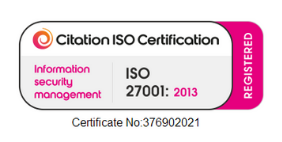What is Hosted Telephony and How Does it Work?
Employees increasingly want and even expect to be able to work from home or on the road. Hosted telephony, also known as cloud telephony, assists dispersed workforces to communicate and collaborate effectively wherever and whenever they want to.
A hosted business phone system is suitable for businesses of all sizes and industry, offering numerous benefits to support the modern workplace. Here’s the key information you need before embracing hosted telephony.
What is hosted telephony?
Hosted telephony, also known as cloud telephony or hosted PBX (private branch exchange), is a phone service that allows businesses to make and receive calls and communicate using the internet rather than a traditional phone line.
A hosted telephone system resides in a data centre hosted in the cloud, rather than your office. Employees can access the phone system through a standard IP handset or a softphone or even an easy-to-use web portal, which takes the burden away from your IT team.
It provides businesses with an extensive range of fixed and mobile telephony capabilities, we’ll take a look at these a little later. Calls are made and received over the business broadband connection and get routed to the right places. Employees can manage their calls easily and effectively, thereby maximising individual productivity.
Hosted telephony is becoming increasingly popular with UK businesses as they adopt cloud based solutions. Moving to the cloud means no up-front spend on hardware, software or maintenance, alongside enabling businesses to support remote and mobile workers, and multiple site locations.
What is the difference between hosted and on-premise telephony?
Instead of using traditional on-premise phone lines and hardware, hosted telephony relies on the internet to transmit phone calls. This can provide organisations with a range of benefits such as cost savings, flexibility and advanced features.
On-premise phone systems are physically held and managed on-site at the business premises. You will have complete ownership and management of all the equipment and operation of the system.
Traditional, on-premise phone systems can be expensive, with costly cap-ex hardware or lease-purchase monthly costs, annual maintenance charges and phone line rental fees. Hosted telephony, on the other hand, eliminates the need for hardware and uses the internet to transmit calls, resulting in lower costs for organisations.
On-Premise telephone systems will eventually require replacement hardware which is costly and can involve substantial downtime. A Hosted system is software based, so even though it’s the network provider’s duty to manage, it is still quick and easy to roll out changes and updates.
How does hosted telephony work?
Hosted telephony is cloud-based, meaning the system is hosted in remote secure data centres. To use a hosted telephony system, organisations use an internet connection, as well as IP (Internet Protocol) phones or softphones or software applications that can be installed on computers or mobile phones. Calls are made and received using the IP phones, softphones or app, which are connected to the internet picking up the features and benefits of the hosted telephony system.

What are the benefits of hosted telephony?
Cost Savings
Hosted telephony systems are typically provided on a subscription basis, which means that businesses only pay for the phone service they need. This makes it easier for businesses to budget for their phone service and avoid unexpected expenses. Additionally, since hosted telephony relies on the internet, businesses can avoid long-distance call charge fees and international calling charges, which can also contribute to significant cost savings.
Certainly, an attractive option for organisations looking to reduce expenses and improve their bottom line.
Flexibility
Hosted telephony systems are highly flexible and can easily adapt to the changing needs of an organisation needing to quickly add or remove phone lines, users and functionality as needed, making it an ideal solution for companies with fluctuating call volumes. This also supports businesses transition through growth and scalability at a time and cost that suits your business.
Mobility
Employees can make and receive calls from anywhere, as long as they have an internet connection. This means that employees can use their work phone number on their mobile device, providing a level of mobility that traditional, on premises phone systems cannot match. This feature is particularly useful for organisations with remote workers, employees who travel frequently, or those with a distributed workforce.
Hosted telephony systems can also provide additional mobility features, such as call forwarding, voicemail-to-email, and mobile apps, which enable employees to stay connected and productive on the go. With the ability to take their work phone number wherever they go, employees can work from anywhere, improving overall efficiency and productivity.
Advanced Features
Hosted telephony offers advanced features that can benefit organisations in many ways. These include call recording, intelligent call routing, voicemail-to-email, call forwarding and more.
Call recording can help businesses monitor and evaluate calls for quality control, training, or legal purposes. Intelligent call routing can route calls to the appropriate department or employee, improving customer service and efficiency. Voicemail-to-email allows employees to access voicemail messages from their email, increasing accessibility and improving response time. Call forwarding allows employees to route calls to their mobile device, providing greater mobility and flexibility.
A large number of new hosted telephony systems are now leveraging the powers of AI for additional functionality, helping businesses streamline their communication processes, improve customer service, and increase overall efficiency.
Integrations
Hosted telephony can integrate with other back-office software systems such as CRM systems enabling employees to quickly access customer information, call history, and notes allowing for a more personalised and efficient customer interaction.
By integrating with email systems like MS Outlook, employees can easily access voicemail messages, and make calls directly from their email, increasing accessibility and response time.
Integrating with other communication channels such as video conferencing and chat, further enhances collaboration and productivity.
Business Continuity
Operating on a hosted telephone system is the most cost-efficient solution in a catastrophic event like a fire or flood or worldwide pandemic! All you would need to do is divert your phone calls to a mobile and an internet connection to get back up running.

No Capital Outlay
Yes, you read that correctly! A hosted telephone system requires no upfront costs. You don’t need to pay-out huge fees for hardware, installation, engineering and maintenance – it’s all included. It works on a ‘per user, per month’ subscription (similar to other subscription services such as Netflix, or Spotify).
Always Up to Date
One of the biggest challenges many organisations face is keeping their telephone system software up to date – this is what hosted systems are perfect for. It’s the network provider’s responsibility to keep your system up to date with the latest software and features. Consequently, you get to enjoy the latest features of telephony without further investment.
Sustainability
A word which has become popular in business responsibility over the last few years. Hosted systems dramatically reduce energy costs and carbon emissions, consequently being the better option sustainably.
Hosted telephony vs VoIP
Hosted telephony and Voice over Internet Protocol (VoIP) are often interchangeable and identified as the same thing, however this is not entirely true. As per its name suggests, VoIP is the technology that transmits voice and multimedia using an internet connection, rather than a traditional phone line. Basically, hosted telephony utilises the technology of VoIP, alongside many other features to communicate and collaborate. Think of VoIP as the technology used and hosted telephony as your cloud-based phone system.
Another core difference is that VoIP can still be on-premise, whereas hosted telephony is cloud based.
How hosted telephony helps with flexible working
Most UK businesses will have already adopted flexible working. Whether it’s a two-hour train journey back from a client meeting or working from home to deal with a broken boiler; there’s a lot of potentially lost hours in modern life for companies who don’t give their staff the tools to work flexibly.
Traditional platforms like fixed desk phones are still important – but to really maximise productivity, you and your team need access to mobile devices with the same functionality.
Hosted telephony costs
Let’s face it, a decent phone system for your business is invaluable and essential for your everyday operations. With a growing number of businesses adopting cloud-based phone systems, understanding which one is right for your business and providing the features relevant for your employees and customers can be tricky. The cost of a hosted business phone system will depend on the solution you adopt, the amount of users required, and features required.
There’s a large number of hosted telephony softwares on the market, one of our trusted, friendly, team members will happily discuss your requirements to assist recommending the most suitable solution for you. We will advise, install and provide support for many leading hosted telephony solutions. Speak to one of our experts today for your free, no obligation quote.

The future of hosted telephony
Hosted telephony enables connectivity with all foreseeable fibre and wireless links into the distant future, especially in relation to, ‘The Great British Switch Off’.’
This is the government initiative aiming to phase out traditional on-premises analogue and copper phone lines, meaning organisations that rely on on-premise telephony systems must ensure they are upgraded and/or equipped to connect into the secure internet voice links now available across the UK.
We all expect much more from modern phone services so as we embrace digital products all ISDN and PSTN phone lines will be replaced with internet protocol (IP) fibre-based services. It’s likely as technology continues to advance that on-premise phone systems will be phased out and replaced by cloud hosted telephony systems. Many businesses are no longer spending on what will be unsupported on-premise telephony, but investing into the next-gen hosted telephony platform.
Latest Blogs Case Studies Articles Events

Cloud Telephony vs VoIP
What’s the difference between cloud telephony and VoIP? Many assume that they’re one and the same, so let’s break it down.

Cloud Telephony Benefits for the Finance Sector
Cloud telephony offers banking and finance businesses numerous benefits to provide an exceptional customer experience.

Cloud Telephony Benefits for Law Firms
Adopting cloud telephony offers many benefits for law firms to improve customer experiences and gain a competitive advantage.




